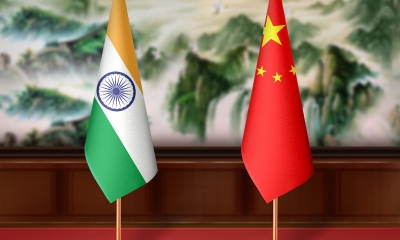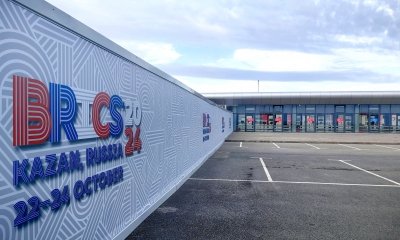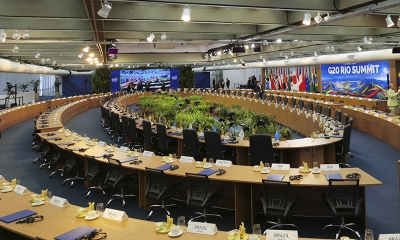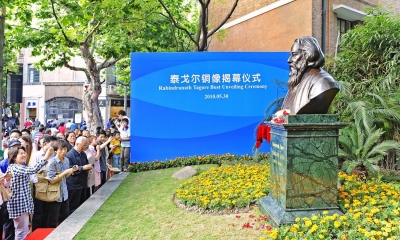China Promotes Global Economic Growth Amid Perils of Protectionism
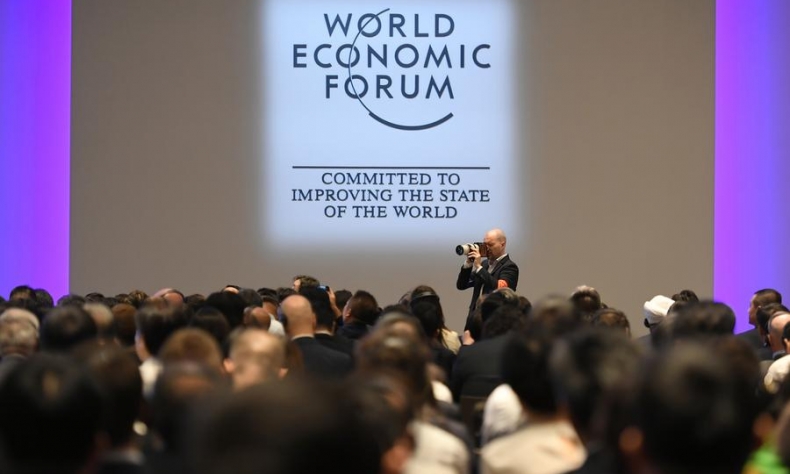
The 2024 Summer Davos Forum has delivered a clear signal for building an open world economy, safeguarding the free trade system, and promoting globalization to develop toward a fairer and universally beneficial direction.
Amid an increasingly complex global backdrop, under the theme of “Next Frontiers for Growth”, this year’s Summer Davos, also known as the 15th World Economic Forum Annual Meeting of the New Champions, concluded in China’s northeastern city of Dalian on June 27.
The high-profile event focused on the new era of globalization and explored how to establish a technology-oriented, more sustainable and inclusive cooperative system to put the world economy back on the right track as the U.S.-led protectionism has been slowing down global growth. Unlike the United States, as an active advocate, practitioner and promoter of an open world economy, China has long maintained that multilateralism is the key to economic globalization. The Dalian Summer Davos showed how the WEF and the international business community appreciated China’s position, role and contribution to global and regional growth.
Since the World Economic Forum set up the Annual Meeting of the New Champions in 2007, also known as Summer Davos, the event is held alternatively in the Chinese cities of Tianjin and Dalian. Undoubtedly, Summer Davos has been providing a bridge to prosperity for all countries, big or small, rich or poor, to share the benefits of global partnerships and multilateralism.
Perils of trade war
Amid increasing uncertainties and instabilities across the globe that are hampering global industrial and supply chains, the three-day meeting attracted a record number of over 1,700 prominent leaders and representatives from over 100 countries and regions including delegates from the United States. Over 200 innovative enterprises attended the forum to popularize their high-end products, technologies and services in the huge Chinese market and find more business partners there. Participating leaders from various walks of life, including politics, business, civil society, academia and the arts, show that the world largely supports China’s efforts to defeat the growing wave of anti-globalization sentiment.
There is no doubt that despite WEF’s efforts to champion a new era of globalization, the Chinese economy in particular and the world economy in general are facing many uncertainties, many of which are interrelated and could trace their roots to the unprecedented trade war launched by the U.S. The U.S.-initiated trade wars against China, India and many other countries are creating major disruptions and distortions in global economic growth prospects worldwide.
This may sound bitter but the reality is that Washington is harboring hostility towards China in the form of tariffs and sanctions which have severely affected the stability of the global economic landscape.
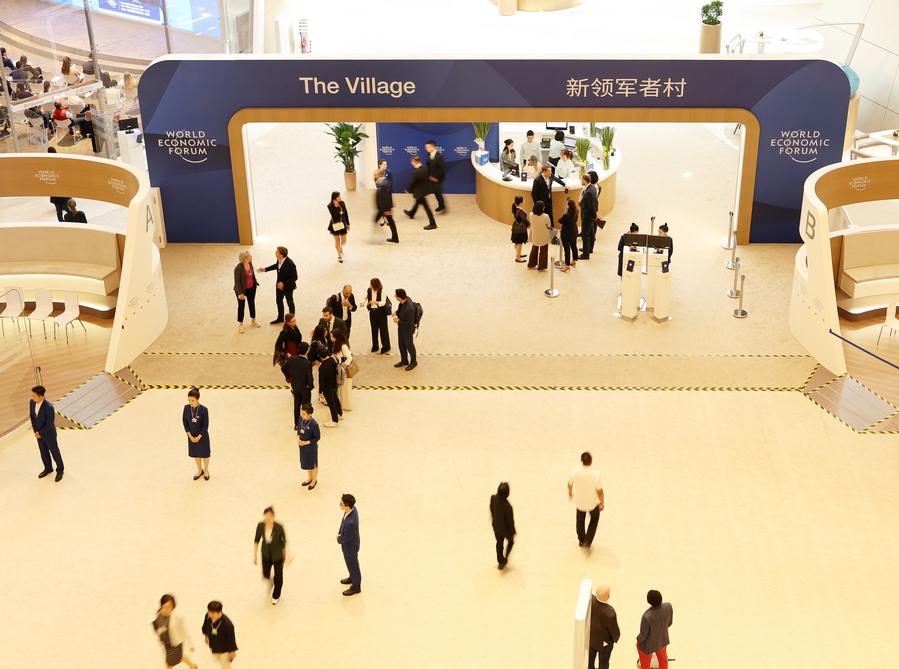
China upholds globalization vision
China, however, remains unfazed and is confident that globalization and free trade are the right things for China and the rest of the world. Under the leadership of President Xi Jinping, China has been trying to create an open and multilateral world, a happy society that is inclusive and benefits everyone. There’s no doubt that China is playing a growing leading role in a range of global, regional, economic, and political institutions. China’s participation in multilateral institutions like BRICS, the Belt and Road Initiative, the World Trade Organization, G20, APEC and SCO, underlines the country’s support for globalization.
Global business elites and promoters of world trade have started to view China as a bastion of globalization and the Summer Davos is an ideal platform for strengthening and enhancing trade. This explains why the keynote address of Chinese Premier Li Qiang at the opening plenary of the 15th Summer Davos on June 25 focused a lot on “globalization, multilateralism, cooperation with WEF.”
With the world closely tracking China’s economic growth, Chinese Premier Li Qiang underscored China’s unswerving commitment to “all-round opening–up and building an open economy of a higher standard” when geopolitical tensions and socio-economic disparities are deepening divides globally. In a key-note speech at the 15th Summer Davos, Premier Li noted that “the exploration of new frontiers should not be seen as a zero-sum game,” but rather “a process where all players compete for excellence and make progress together,” a clear rebuke to the rise of protectionism and unilateralism fostered by Western countries led by the U.S.
Premier Li also pointed out that the slowdown of world economic growth in recent years has a lot to do with various forms of “decoupling and breaking chains” and “building walls and barriers” by certain countries, adding that the inter-connectivity of all economies can lead to common progress while shutting oneself off from others will only result in regress. Notably, by 2023, China has established 22 pilot free-trade zones, demonstrating an innovative approach to integrated reform and opening up across coastal, inland and border regions.
On the first day of the Summer Davos, during his meeting with Premier Li, WEF Executive Chairman Klaus Schwab said, “Under the current complex international situation, it is more imperative than ever to strengthen international cooperation.” He said, “The WEF is committed to continuing close cooperation with China to work for the stable and healthy development of the world economy and jointly respond to global challenges.”
It’s encouraging to see China’s vision of globalization getting greater global support. It is undeniable that the adversarial “zero-sum” doctrine of “one winner, one loser” has dampened the very spirit of the globalization process, creating havoc to the global economy and risking world security.
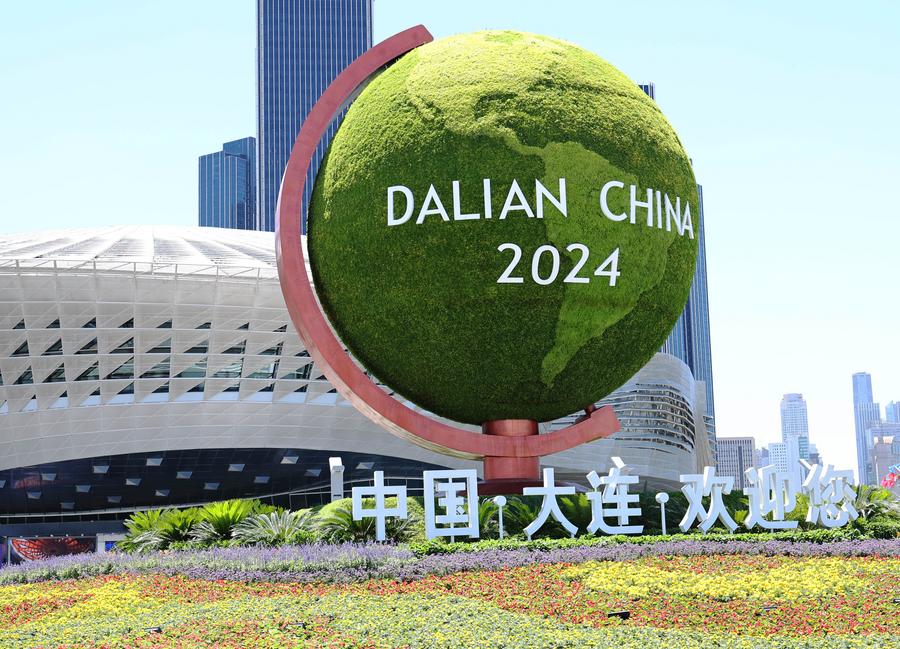
Shaping global governance
The future of globalization requires countries to work together. As Chinese President Xi Jinping said at the WEF in Davos, Switzerland in 2017: “In the face of both opportunities and challenges of economic globalization, the right thing to do is to seize every opportunity, jointly meet challenges and chart the right course for economic globalization.”
China is still one of the fastest-growing economies in the world. In his address, Premier Li also reminded foreign investors of China’s vast consumption market, adding that foreign companies can equally enjoy China’s tax cuts for small enterprises. The International Monetary Fund’s growth projection for China at 5 percent this year raises tremendous confidence in China’s leading role despite the recent tariff hikes by the United States and by the EU on Chinese electric vehicles (EVs). It’s worth mentioning that the IMF recently revised down its 2024 U.S. GDP growth forecast to 2.6 percent from the 2.7 percent forecast in the global lender’s World Economic Outlook in April.
As the Chinese saying goes: “The flame runs high when everyone adds wood to the fire.” The key message of the 15th Summer Davos is collaboration and shared benefits through the preservation of multilateralism, leading to a more open and inclusive economic globalization.
By organizing mega events such as the Boao Forum for Asia, the China International Import Expo (CIIE), the Conference on Dialogue of Asian Civilizations, the Belt and Road Forum and the Summer Davos, China has shouldered its global responsibility for the greater good of humanity. However, while globalization is bringing benefits to all countries, at the same time it presents risks of growing inequality. As such, only by working together can world leaders cope with the challenges and overcome difficulties arising from the process. It is hoped that all countries will seek convergent interests and complement each other’s advantages to achieve win-win results.
To sum up, it can be said that the 2024 Summer Davos Forum has delivered a clear signal for building an open world economy, safeguarding the free trade system, and promoting globalization to develop toward a fairer and universally beneficial direction.
The article reflects the author’s opinions, and not necessarily the views of China Focus.
 Facebook
Facebook
 Twitter
Twitter
 Linkedin
Linkedin
 Google +
Google +




